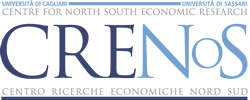Determinants of national medals totals at the summer Olympic Games: an analysis disaggregated by sport
| Title | Determinants of national medals totals at the summer Olympic Games: an analysis disaggregated by sport |
| Publication Type | Book Chapter |
| Year of Publication | 2015 |
| Abstract | Prior literature focusing on the structural determinants of country medal totals at the Summer Olympic Games has highlighted the roles of GDP and population size and identified also hosting effects and superior performance by communist nations. This chapter adopts a similar (random effects Tobit) model but applies it sport by sport rather than to the aggregate medals table. While GDP is strongly significant in most cases, the steepness of the relationship between performance and size of economy varies substantially. Equestrian, sailing and swimming appear the most elite disciplines, while income level is much less of a barrier to national success in sports such as judo and wrestling. Both hosting effects and the degree of over-performance by countries which were in the Soviet bloc also varied considerably across sports. It is argued that the results provide guidance to low-and middle-income countries which aspire to improve their share of medals. |
| Authors | Forrest, D, McHale, IG, Sanz, I, Tena, JD |
| Book Title | The Economics of Competitive Sports. New Horizons in the Economics of Sport series (Edited by Plácido Rodríguez, Stefan Késenne and Ruud Koning) |
| Publisher | Elgaronline |
| Pagination | 166–184 |
| ISBN Number | 9781783474752 |
| URL | http://www.elgaronline.com/view/9781783474752.00017.xml |
| DOI | 10.4337/9781783474769.00017 |
